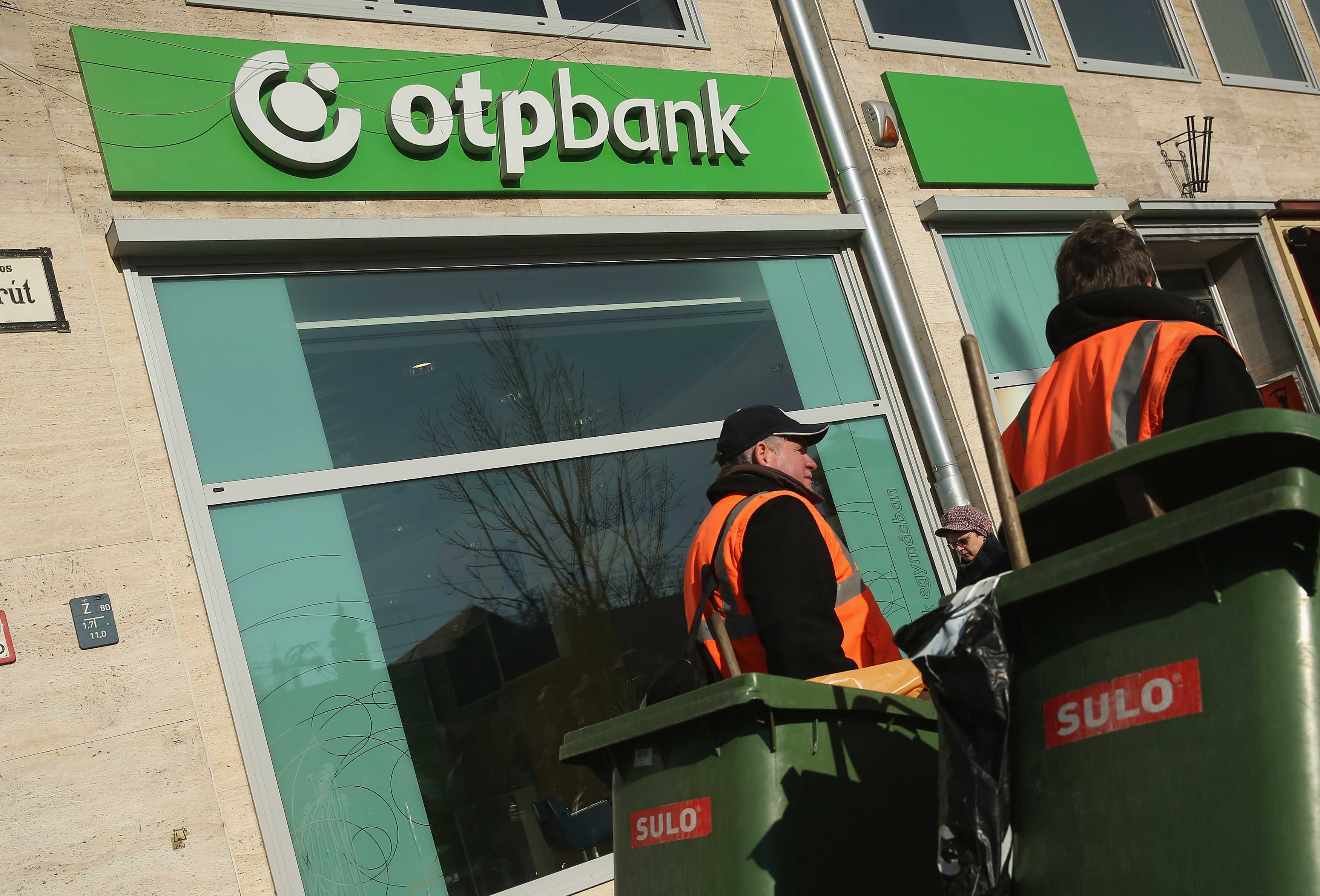Ukraine has removed the largest commercial bank in Hungary from its blacklist of those supporting Russia’s full-scale invasion with the hope the move could secure Budapest’s commitment to funding Kyiv’s war effort.
The Ukrainian National Agency of Corruption Prevention’s (NACP) withdrawal of OTP Bank from Kyiv’s “international sponsors of war” list comes as the EU said it would unfreeze funds for the country whose prime minister, Viktor Orban, is considered an ally of Russian President Vladimir Putin.
In May, the bank was added to Ukraine’s blacklist, which was created to deter foreign operations in Russia. But the Ukrainian agency said it would temporarily remove the bank following talks with the European Union‘s External Action Service, saying OTP had “made a number of commitments regarding its future plans for the Russian market.”
The move being made permanent will depend on the bank’s willingness to terminate cooperation with Russia, the agency added.
The NACP said the move was aimed at securing Budapest’s support for the latest package of EU military aid to Ukraine. The anti-corruption agency said in a statement that the decision was the result of negotiations with the bank and officials in Budapest with the hope that Hungary will unblock €500 million ($523 million) “of vital EU military aid for the Ukrainian people.”
However, the Hungarian government said that “no significant changes have occurred due to the temporary suspension” of the bank. Hungarian Foreign Ministry spokesperson Mate Paczolay told local media that until the bank removed from the list, “Hungary will not participate in further EU funding for arms shipments to Ukraine.”
When contacted by Newsweek, OTP Bank said in a statement that it was “reassuring…that the competent Ukrainian authorities are convinced that its inclusion on the list is unjustified.”
However, it rejected a number of NACP’s accusations that put it on the list in the first place. These included that it operated in Russian-occupied territories in the Donbas and Crimea and that it recognized the existence of the so-called people’s republics of Luhansk and Donetsk.
OTP Bank also rejected the NACP’s claim it had provided “preferential credit” to Russian army members and had played an important role in the Russian economy.
“During the negotiations with the NACP, OTP Bank undertook to maintain its cooperation with the international investment advisor Rothschild Martin Maurel, with whose assistance it will continue to examine all its strategic options for the future of the Russian subsidiary,” the statement said.
Newsweek has contacted the NACP for comment by email.
Orbán enjoys good relations with Putin, having pushed back against EU sanctions and tried to dampen the military support of NATO, of which Budapest is a member. While Russia has restricted gas supplies to other European countries, it has agreed to increase its deliveries of fuel to Hungary.
It has been reported that the EU intends to unfreeze $13.6 billion in funding by the end of November. In December 2022, the EU froze $23 billion in funding which would have helped Hungary develop and improve infrastructure.
In response to demands from Brussels, Hungary carried out judicial reforms in May that could unlock the payments, known as cohesion funds, as the EU seeks unanimity among its member states to continual financial support for Kyiv.

